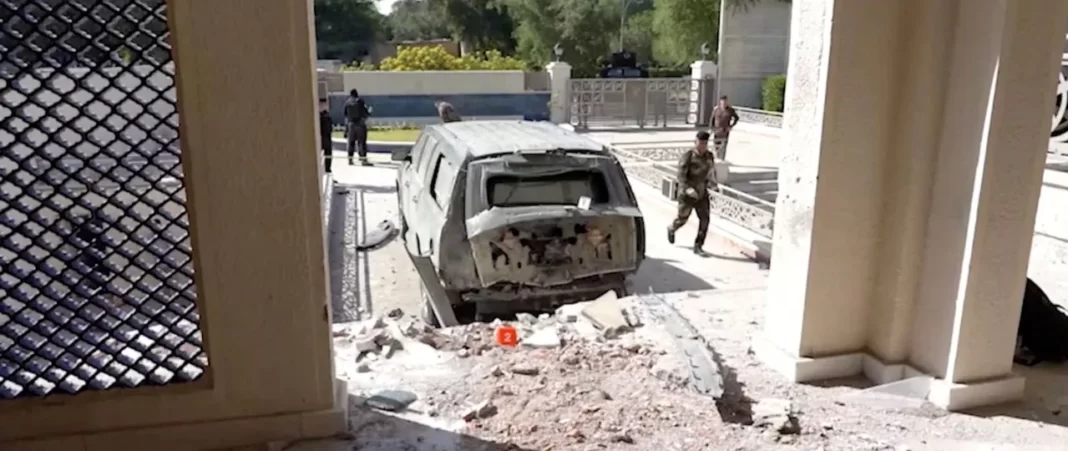A drone attack that targeted the Iraqi prime minister on Sunday was carried out by at least one Iran-backed militia group, Reuters reported on Monday.
The Iraqi security sources and sources close to the militias, who spoke to Reuters on Monday on condition of anonymity, said the drones and explosives used in the assault were Iranian-made.
On Sunday, Tehran condemned the attack and the official media tried to distance Iran from the incident, claiming that it was a plot against “resistance forces” in Iraq.
Prime Minister Mustafa al-Kadhimi escaped unhurt from the attack on his residence in the Iraqi capital Baghdad, which was carried out using explosives-laden drones.
Two Iraqi security officials and three sources close to the militia groups that Iran has supported in Iraq said the attack was committed by at least one of those groups but gave slightly different assessments of exactly which factions.
The two security officials said that the powerful Kataib Hezbollah and Asaib Ahl al-Haq groups carried it out in tandem.
One militia source said that Kataib Hezbollah was involved and that he could not confirm the role of Asaib.
The incident could be seen as another sign of Iran’s interventionist regional policies that for years have alarmed some Arab states and the West.
No group has claimed responsibility for the attack, which raised tension in Iraq a few weeks after a general election disputed by Iran-backed militias including Kataib Hezbollah and Asaib.
The political parties that represent Iran-aligned paramilitary groups in parliament suffered crushing defeats at the polls on October 10, losing dozens of the seats they have controlled for several years.
The Iran-backed armed militias do not like the prime minister who tries to maintain a balance between Washington and Tehran and has good relations with the West.
The election defeat comes as the Islamic Republic boasts to its domestic audience about the influence of its Shiite ideology in neighboring Iraq. Iranian critics of the clerical regime say that after spending billions of dollars to gain influence in a Shiite-majority country, the people reject its local allies and its presence.
Source: Iran International
Also read: IRGC and Hezbollah heavy presence in Yemen expose Iran’s push for war

